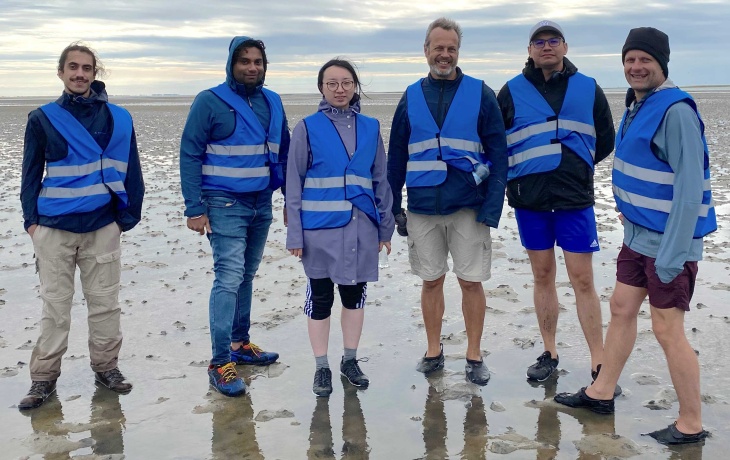Ecosystem Modeling
The “Ecosystem Modeling” department studies how life in coastal seas is transformed by humans in direct and indirect ways. We develop new hypotheses on key processes for socio-ecological system dynamics and test these using data analysis and integrative modeling. We conduct realistic, trait-based, and coupled physical-biological simulations and generate scenarios for the impacts of climate change as well as for sustainable management.
Our trait-based models uniquely describe biological agency, such as adaptation and behavior, in an Earth system perspective. Our research focuses on biological adaptation and evolution, plankton and zoobenthos ecophysiology, marine food webs and diversity, and human agency.

The Ecosystem Modeling group (Photo: Wirtz/Hereon)
Outreach and Press Releases
- Unstable climate - bad luck for humanity Whether cultures flourished or declined over thousands of years depended on how much the climate changed. This is suggested by a study in which an international team led by the Helmholtz-Zentrum Hereon compared climate data with tens of thousands of archaeological findings. As the researchers write in the journal “Nature Communications”, the population on the various continents shrank when the climate became unstable over a long period of time.
- A shrimper’s virtual logbook Interactive model simulation in the form of a commented logbook. Follow the virtual boat "Linda" on her journey between Norddeich and Juist. You can download this model and influence the actions. Developed in the MuSSeL project.
- Do oceans absorb more CO2 than expected? New theory on the movement of phytoplankton could imply that oceans absorb more CO2 by 2100 instead of less.
- Greatest Migration on Earth Happens under Darkness Every Day Prof. Kai Wirtz explains vertical migration of marine phytoplankton
- Corona gets us tired Societies act rationally and in solidarity – but also increasingly experience a sense of fatigue, says a study of Helmholtz-Zentrum Hereon
